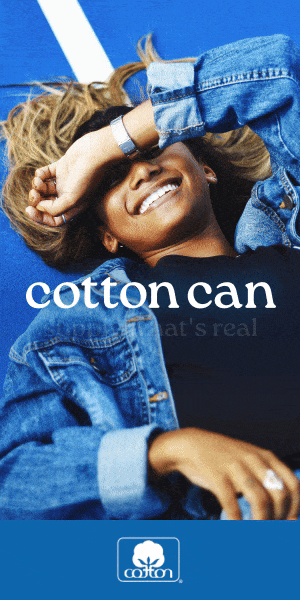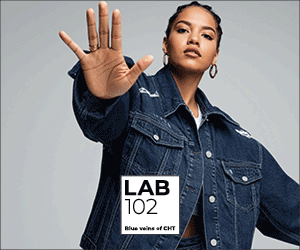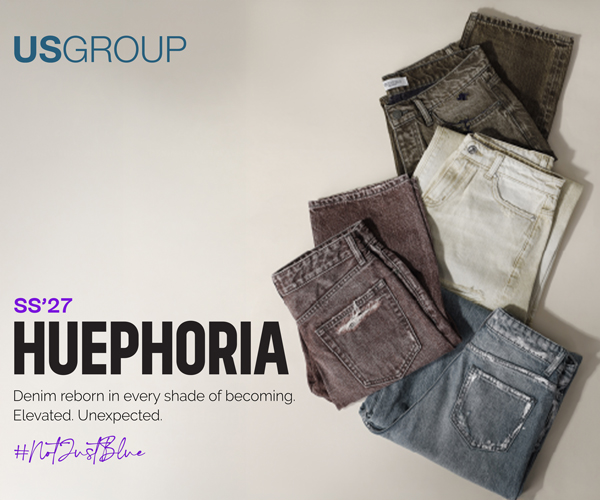Alberto Candiani: If we want to make lasting advances, we must level the playing field

Alberto Candiani, the president of Italy’s Candiani, believes the pandemic could lead to sustainable change, but that global regulations are necessary. He says compostability should be prioritised when it comes to tackling waste, and is proud of the mill’s advances with Coreva, a world first in denim fabric innovation.
To say that 2020 was difficult would be an understatement, and I know the entire industry would agree. In many ways, we are still reeling from its impacts. We have all seen raw material costs skyrocket and labour costs increase – both of which will most likely be reflected in our prices.
However, I believe that the pandemic may actually be seen as a booster for truly sustainable change or an equaliser that promotes “re-shoring” and other responsible choices. Indeed, there is more interest in sustainable products, transparency and traceability. This interest is going to stay. Most importantly, consumer behaviours are changing, shifting demand towards more sustainably and ethically produced goods. This is another thing I think is likely here to stay.
The word on everyone’s tongue is circularity, which offers many challenges but also immense opportunities. We all must recognise that the current economic model is designed to exceed our planetary boundaries. There is no future for capitalism without circularity. Is it a silver bullet? No. But it is a paradigm shift that must take place in order to start respecting the boundaries of our earth’s systems.
At Candiani, we are taking our first strides toward creating a truly circular model that we hope can inspire the rest of the industry. That means continuous R&D, which starts with design. Nowadays, we engineer our fabrics according to their end of life and the issues they might generate when a pair of jeans is “done”.
Two of the main issues the industry must face are overproduction and waste. We are now creating materials that facilitate recycling, post-industrial and post-consumer, but also compostability. In general, I believe compostability as an end-of-life solution should be prioritised in a circular model. Most of the industry is focusing on recycling, which is vitally important. However, we must remember that this is more of a mid-life material transformation that still does little to address the issue of waste at a material or product’s true end of life – those whose quality is so degraded they simply can’t be reused.
Coreva, our latest patent and probably most significant innovation ever, is the world’s first compostable stretch denim. It allows even our stretch fabrics to hit many critical sustainability touchpoints. Not only does it enhance performance, comfort and have a beautiful hand-feel, but it can also be turned into nutrient-rich compost at the end of life and used to grow new raw materials while restoring soil health. Likewise, waste from the recycling process can also be treated similarly, creating a tangible solution to make textile recycling far less wasteful.
We were told that was not going to be possible with stretch fabrics. Still, we invented Coreva, which is not just a technology but a vision for a regenerative system and circular model. It is important to stress that we are not making compostable fabrics, so they can simply be thrown away in the compost bin. In fact, our denim is designed to be strong, long-lasting, and durable but now it also offers a positive impact once it can no longer be used.
From here on, we will continue to push boundaries. The true Candiani vision is to link industrial production to agriculture within regenerative systems and practices that would keep production truly sustainable and impact the environment positively when possible. This may seem like a pipe dream, but I honestly believe it is possible and that Coreva is the first building block of this new reality.
That makes me believe the future will be positive. I believe this is the beginning of a whole new era in which Candiani will also eventually evolve from its B2B shape to a model B2C form in which that “C” no longer stands for “consumer” but instead for "citizen”.
Over the course of the past few years, we have opened two stores in Milan to engage these “citizens” directly. At Candiani Custom, we craft jeans made-to-measure. And at Candiani Vision, a retail space dedicated to Coreva, we showcase, through educational experiences, what the Candiani vision is about, displaying those regenerative systems and circular models.
As an industry, we must also address the continued globalisation of our supply chains and the perpetual race to the bottom that is making the denim industry even more of a tenuous place. We are all playing the same game with very different rules. If we want to make lasting advances on the sustainable and ethical production front, we must level the playing field. We need to enforce global regulations that hold everyone to the same standards, also including how we communicate about sustainability topics – and we need them now.
Photo: Candiani













